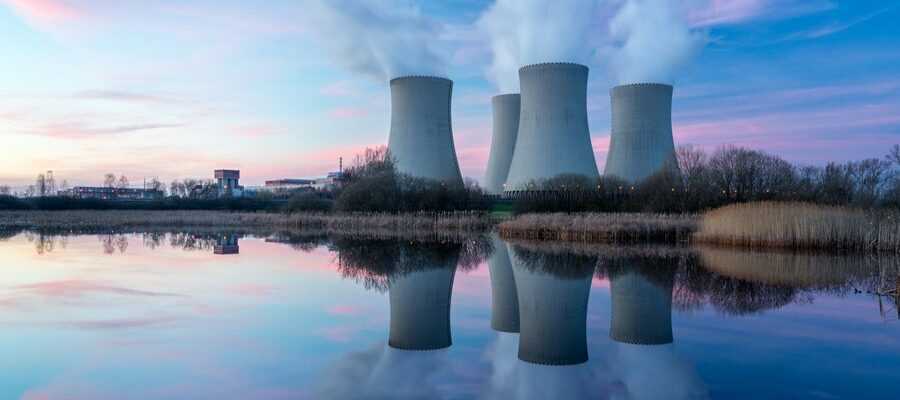To quickly reduce greenhouse gas emissions and, more broadly, human pollution, scientists are looking for the greenest solutions adapted to each territory.
And, at the energy level, where solar and wind power prove to be insufficient or unsuitable, it is nuclear power that appears to be the favourite.
When the sun stops shining, the wind stops blowing…
Is nuclear power the key to accelerating the transition to more sustainable energy production methods, such as a global and rapid reduction in our greenhouse gas emissions? This is what two researchers from the Carnegie Institute (United States) and two members of structures oriented towards environmental research founded by Bill Gates seem to affirm. Their collective work has just been published in the scientific journal NatureEnergy.
According to them, a modernized, more flexible nuclear energy production at a more competitive price would indeed be interesting to accelerate the reduction of greenhouse gas emissions, but not in any circumstances. Indeed, their work covers 42 regions with varied energy supply and demand. It shows that in regions where it is possible to produce large quantities of green energy via wind or solar power, several issues arise. The first is the feasibility of 100% renewable production, since producing solar energy 24 hours a day is not possible, nor is it possible to run wind turbines without wind (except for bad language).
The second main problem concerns the potential storage of the energy produced, and therefore the infrastructures that already exist, or have not yet been built, in order to meet human energy needs on a permanent basis. The main objective is to dispense with gas as “backup” energy. The models used highlight nuclear power as a means of substitution, or even acceleration, with a view to reducing emissions.
The poorer the region, the more attractive nuclear power is
This research group has pinpointed a very interesting observation. In countries like the United States, where it is possible to quickly produce green and competitive energy thanks to wind power, nuclear power is not at all a priority choice. On the other hand, in places like Brazil, where the manufacture of green energy is less easy to set up, this method may prove to be relevant.
Indeed, still according to the group of researchers, nuclear power would be much cheaper for Brazilian households for two reasons. First of all, it is less expensive to produce. Then, storing wind and solar power would eliminate that cost. The change could therefore come from a reduction in the cost of storing electrical energy. In the meantime, to rapidly reduce the carbon footprint in Brazil, it is nuclear power that is at the forefront of energy production solutions.
What if we could draw solar energy closer to its original source? What if solar satellites radiate electricity to the surface of the planet from space?
Read more
Sources: NatureEnergy
, ScienceDaily

25